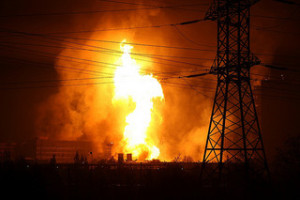Over the last few decades, the media has reported on a variety of lawsuits that it deems frivolous. These so-called frivolous lawsuits are often portrayed as being brought by plaintiffs who are just looking to make a quick buck. Few articles or news stories have gone into the details of these cases, but instead focus on the aspects that, at first, might make the lawsuit seem unfounded.
Recently, for a second time, a lawsuit over hot coffee has gained media attention. In both cases, plaintiffs filed suit based on burn injuries resulting from spills of the coffee. But are these cases really about simple coffee spills? Is there more at issue? 
The McDonald’s Case: The Original Hot Coffee Case
In 1994, Stella Liebeck was awarded $2.8 million, which was reduced to $640,000 by the judge, in a product liability lawsuit against McDonalds. This case has been held up as the prime example of frivolous lawsuits. ABC News identifies the case as the “poster child of excessive lawsuits.”
What the mainstream media does not report, and what most people don’t know, are the facts of the case. Ms. Liebeck was a passenger in car that was stopped in the parking lot of the McDonald’s where she purchased her cup of coffee. When she held the cup between her knees to add cream and sugar, the cup spilled on to her lap.
Coffee is commonly known to be hot, but the coffee from McDonald’s was excessively and dangerously hot. It was McDonald’s policy to keep its coffee at 180 to 190 degrees Fahrenheit. McDonald’s had received more than 700 complaints of injury due to the temperature of its coffee.
Ms. Liebeck suffered third-degree burns and required significant medical care, including skin grafts and hospital stays.
The New “Hot Coffee” Case
Earlier this month, a new “hot coffee” case began circulating in the mainstream media. In this case, a North Carolina police officer received a free cup of coffee from Starbucks, and asserts that the cup collapsed in his grip and resulted in third-degree burns which aggravated a pre-existing medical condition and led to high medical costs.
The general skepticism surrounding the police officer’s claims is not difficult to find. In one article, the headline reveals, “Cop who sued Starbucks for hot coffee delayed ER.” In another article, the first line explains the facts by stating that the police officer was suing, “after he apparently spilled a free cup of coffee on himself.” The articles focus on the fact that the cup of coffee was free, and identify the police officer as the person at fault for the spill. The police officer’s injuries do not receive the same prominent placement or attention. In this case, the jury found in favor of Starbucks.
However, if there is any takeaway from Ms. Liebeck’s case, it is that these claims and these injuries should not be treated with skepticism or assumed to be frivolous. Burn injuries can be serious and cause severe pain and suffering, as well as astronomical health care costs for those affected.
If you have experienced a burn injury and have questions about what options are available to you, contact our personal injury attorneys. They will guide you through your legal options and help you seek justice.
See Related Blog Posts:
The “Eggshell Plaintiff” Rule in San Francisco Injury Lawsuits
 San Francisco Injury Lawyer Blog
San Francisco Injury Lawyer Blog

